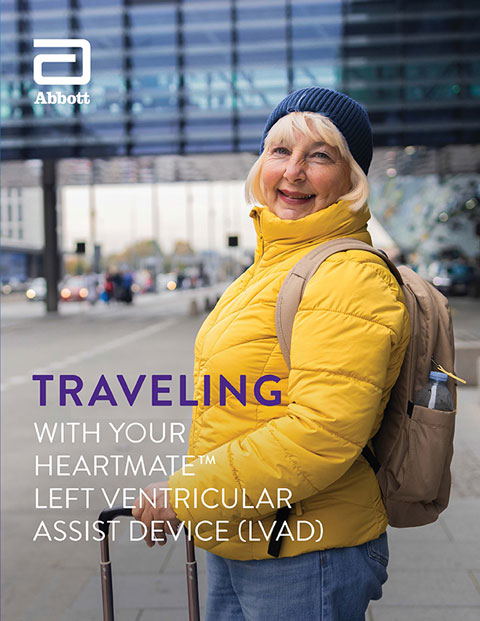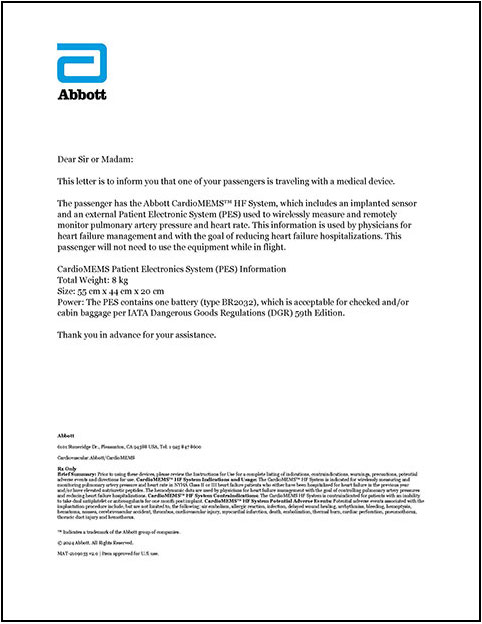Traveling with your device is generally
easy and safe.
Here are some things to know or consider
First, consult with your doctor.
It’s important to notify your care team about your plans, so they can:
- Help you connect with a doctor at your destination, just in case you need care
- Help you plan for the right level of exercise or activity while you’re away
- Create a travel and emergency action plan for long-distance trips
- Talk with you about travel safety rules for equipment
- Help you think through how to manage any possible issues
- Provide any other relevant information
What to bring with you
- Pack any medications. Bring about a week’s more than you expect to need for the trip. If traveling by plane, pack your medication in your carry-on so it’s with you for the entire journey.
- Bring a photocopy of the prescriptions your doctor wrote, along with any related insurance or pharmacy information so you can get prescriptions filled while you’re away.
- Make sure to carry your patient ID card wherever you go.
- Ask your doctor for the last printout from your device at your most recent evaluation.
Air Travel
Traveling by plane? Rest easy. Air travel, including passing through airports, is safe. It’s also simple, if you know what to look for.
Security Checkpoints
When you go through security checkpoints, full body scanners that utilize millimeter technology may be preferable, if available, for your device.
If your physician has directed you otherwise, or you are uncomfortable using the metal detectors or scanners, request a full-body pat down as an alternative security screening.
Move through metal detectors at a normal walking speed. Don’t pause for more than a few seconds.
If your device sets off the detector, tell security personnel about it and present your ID.
If security personnel use a handheld wand for scanning, ask them to move it over your device or PA sensor area quickly.
For people with a HeartMate™ LVAD

Learn more about traveling safety with your HeartMate LVAD including how metal detectors and body scanners can interfere with your pump.
For people with a CardioMEMS™ HF System

Bring this travel letter with you when you fly.
In the air
On your flight, stay hydrated and move around as much as possible. When you’re sitting, do simple ankle rotations and leg movements to keep the blood circulating in your body.
Car and RV Travel
If you’re traveling by car or RV, consider the following recommendations:
- Tell family or a close friend where you’ll be going and what your route will be in case any issues come up on the road.
- Keep your cell phone handy and charged if you have one, so you can be in touch any time you may need support or assistance.
If you have a HeartMate LVAD
Avoid riding in the front seat of cars with airbags. (The impact force during an accident could cause serious damage or bleeding.)
Your doctor will tell you whether it’s safe for you to drive an automobile when you have a pump. Usually, you need to wait at least 6-8 weeks after surgery before your doctor will approve you to drive. Some states have laws against letting people with a history of fainting, dizziness or cardiac arrest behind the wheel.
Cruise Ships
Cruise ships often have a doctor and medical services on board. Before booking your trip:
- Ask if the cruise ship provides medical resources.
- Find out if the ship offers group cruises for people with implanted devices.
MAT-2101896 v3.0

